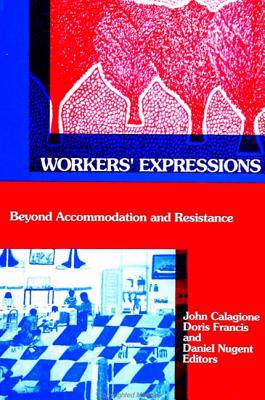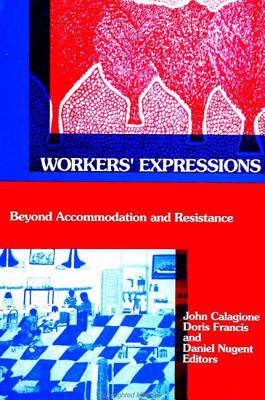
Bedankt voor het vertrouwen het afgelopen jaar! Om jou te bedanken bieden we GRATIS verzending (in België) aan op alles gedurende de hele maand januari.
- Afhalen na 1 uur in een winkel met voorraad
- Gratis thuislevering in België
- Ruim aanbod met 7 miljoen producten
Bedankt voor het vertrouwen het afgelopen jaar! Om jou te bedanken bieden we GRATIS verzending (in België) aan op alles gedurende de hele maand januari.
- Afhalen na 1 uur in een winkel met voorraad
- Gratis thuislevering in België
- Ruim aanbod met 7 miljoen producten
Zoeken
Workers' Expressions
Beyond Accommodation and Resistance
€ 145,45
+ 290 punten
Omschrijving
This book explores the interrelations between work and social life. It emphasizes how workers' expressive forms and public performances connect with processes of social, cultural, and individual empowerment. Departing from perspectives that emphasize organizational integration, equilibrium, and continuity, the authors present evidence from anthropology, history, and folklore to explore intersection of popular culture and working situations. The authors offer new data in the on-going debate about the separation of work and leisure, and raise questions about the diverse representations of class and the labor process. They identify workers' cultural values that emerge within the changing context of production, and that are not merely an outcome of industrial hegemony. Instead, workers' representations and articulations of craft mastery, class identity, and gender, reveal transformations of the traditional categories of those who produce and those who appropriate value. The studies of workers' lives range from contemporary United States and Mexico to China, India, and Japan.
Specificaties
Betrokkenen
- Uitgeverij:
Inhoud
- Aantal bladzijden:
- 242
- Taal:
- Engels
- Reeks:
Eigenschappen
- Productcode (EAN):
- 9780791408353
- Verschijningsdatum:
- 16/03/1992
- Uitvoering:
- Hardcover
- Formaat:
- Genaaid
- Afmetingen:
- 152 mm x 229 mm
- Gewicht:
- 498 g

Alleen bij Standaard Boekhandel
+ 290 punten op je klantenkaart van Standaard Boekhandel
Beoordelingen
We publiceren alleen reviews die voldoen aan de voorwaarden voor reviews. Bekijk onze voorwaarden voor reviews.











